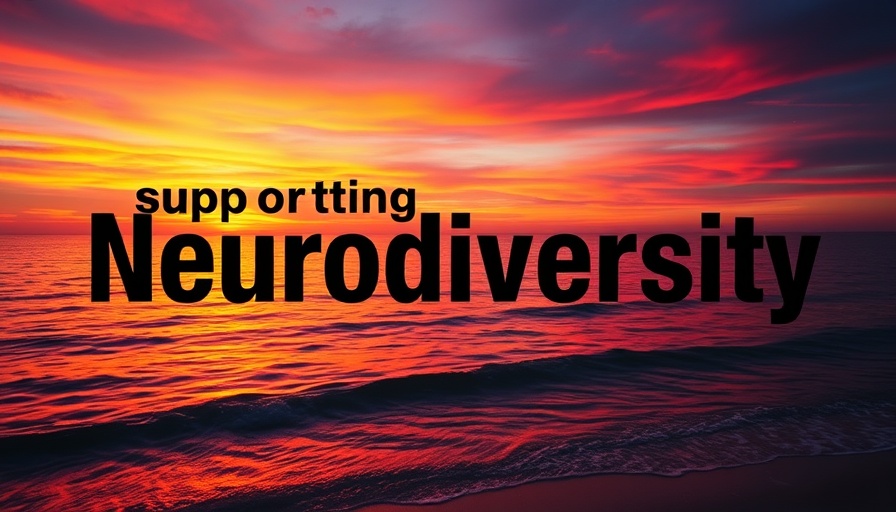
Understanding Neurodiversity: A Crucial Goal for 2024
The neurodivergent community continues to face unique challenges not only in accessing essential services but also in being recognized for their distinct strengths. As we review initiatives through our exploration of the video 2024 In Review: Supporting Neurodiversity, it's vital to reflect on how far we have come and what still needs to be done.
In 2024 In Review: Supporting Neurodiversity, the video highlights various insights and initiatives focused on the neurodivergent community, prompting a deeper analysis of these issues.
Trauma and Its Impact on the Neurodivergent Community
Aisha McDonald, from United Way, emphasizes how normalizing certain adversities can drown out recognition of trauma within marginalized communities, particularly among the neurodivergent. For these individuals, life events that others might categorize as traumatic can go unnoticed. As the community grapples with these realities, increasing awareness of how distinct brains experience trauma is paramount for effective support.
The Importance of Peer Support in Mental Health
Nicole from nine M’s Art Center articulates a fundamental truth: understanding from peers who have navigated similar paths can alleviate feelings of isolation. Peer support advocates for shared experiences where members of the community validate one another’s journeys, often providing practical insights not obtainable from a professional setting. For many in the neurodivergent community, this shared understanding can make a significant difference in managing mental health challenges.
Personalized Learning: What Can Schools Learn?
Tyena George stresses the significance of recognizing diverse learning styles. Traditional classroom sizes often hinder individualized learning, particularly for neurodivergent students. Schools like Fusion Academy are setting precedents by tailoring education to each student’s unique pace, providing strategies that lead to greater success. The transformative impact on academic performance highlights the vital evolution required in our education systems.
Celebrating Strengths Instead of Focusing on Limitations
Dr. Jenny Troio’s insights reflect the shift needed in how we approach neurodiversity. A shift from a deficit-centered model to one celebrating strengths can foster a supportive environment leading to significant growth. This perspective not only empowers individuals but also unleashes untapped potential.
Positive Impact of Therapy Animals
Animals, as discussed by Courtney, Laura, and Gracie from canine-assisted therapy, serve a unique purpose in therapy. Their nonjudgmental nature fosters an atmosphere of support and compassion, essential for individuals struggling with self-acceptance. The genuine connection between humans and animals can pave the way for monumental healing.
Returning to Humanity: The Broader ROI
As Anthony Pilio points out, assessing the return on investment (ROI) of inclusivity means more than just looking at productivity statistics. It’s about nurturing human potential and enabling people to thrive in various aspects of life. Prioritizing support for neurodivergent individuals can lead to significant societal advantages, including improved mental health, increased independence, and a more empathically-driven workplace culture.
As we aim to elevate the discussions surrounding neurodiversity in 2024, we must prioritize education and understanding in both personal and professional realms. Each initiative and conversation connects us further to a future where neurodiversity is recognized as a strength rather than a limitation.
Advocating for neurodivergent communities is crucial as we strive for a more inclusive society. If you are inspired by these insights, join the conversation and explore ways you can support the neurodivergent within your local communities.
 Add Row
Add Row  Add
Add 




 Add Row
Add Row  Add
Add 

Write A Comment